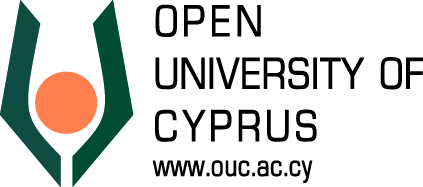Digital Resources & Databases
1. Archive of the Performances of Greek and Roman Drama, UK (APGRD).
“Based in the University of Oxford’s Faculty of Classics, the APGRD (Archive of Performance of Greek and Roman Drama) is a pioneering centre for international research into performances inspired by ancient Greek and Roman tragedies, comedies, and epics.
Our focus encompasses performances taking place in any country and at any time, from antiquity to the present day. We consider performance in its broadest sense: professional and amateur alike, on stage, screen, radio, in opera, dance, burlesques, puppet-shows, and more.
We have built three online open-access databases, recording details of:
- performances in the ancient world (6th century BCE to 5th century CE).
- performances in the modern era (1315 CE to the present).
- the location of recordings of modern productions.”
Excerpt from the APGRD website: https://www.apgrd.ox.ac.uk/about-us
2. The Classical Reception Studies Network, UK (CRSN).
“The Classical Reception Studies Network (CRSN) aims to encourage collaboration in the field of classical reception studies, on a global scale. Classical reception studies is the inquiry into how and why the texts, ideas, images and material cultures of Ancient Greece and Rome have been received, adapted, refigured, used and abused in different historical and cultural contexts.
The CRSN was originally formed in 2004. Funded by the Arts and Humanities Research Council, the original six partner institutions were soon joined by a wide range of international collaborators. Now, in its second decade, the CRSN is committed to accessibility and inclusivity by providing an online hub for information and resource sharing, and by continuing to organise and facilitate research and career development events, with a particular focus on graduate students and early career researchers. This website maintains a comprehensive list of relevant events (and archives old ones), and the CRSN blog provides a regular stream of news and comment on classical reception topics. We provide links to other useful websites, organisations, and reception projects.”
Excerpt from the CRSN website: https://classicalreception.org/
3. The European Network of Research and Documentation of Performances of Ancient Greek Drama, Greece (Arc-Net).
“The European Network of Research and Documentation of Performances of Ancient Greek Drama (Arc-Net) aims to establish an expansion and a re-orientation of the academic community as well as to improve the traditional methods of teaching ancient drama, by creating new activities of an interdisciplinary and comparative nature. The main goal is to promote and carry out scholarly work, by initiating and coordinating comparative analyses, concerning the role and function of ancient drama and theatre in Europe. By analyzing the artistic forms and moral views expressed in editions as well as in public performances of ancient drama and its adaptations, recreations and new versions, the scholars and students in the Arc-Net will be able to trace, not only the importance of common heritage in the shaping of a European identity, but also the differences between local (national or other geographic cultural areas) cultural identities.”
Excerpt from the Arc-Net website: https://sites.google.com/view/arcnet
4. The Classical Receptions in Drama and Poetry in English from c.1970,
“This project on the modern Reception of Classical Texts was set up to document and analyse the upsurge of interest in Greek and Roman material which has been a feature of the late twentieth century and continues into the twenty first. This cultural remodelling and reimagining has often coincided with times of social and political crisis: conflict; resistance; trauma; emancipation; exploration of old and new identities. It also has a strong aesthetic energy. The ancient texts provide a springboard from which creative practitioners can forge their own techniques; the texts represent traditions from which the new creators can grow their work and against which they can contend. (…)
The drama database and the poetry research document evidence that is fundamental to the critical assessment of the aesthetic impact and the cultural hinterland of Greek and Roman material in Anglophone theatre and literature c. 1970 – c. 2005. It preserves detail that will contribute to analysis of large issues of social, political and artistic change. The case studies and data bases will provide a corpus of material to which cultural historians will be able to refer in the future – for example when they assess the contribution made by classical receptions to constructs of cultural memory, temporality and identity in a key period of trauma, fracture and change in the last part of the twentieth century and the early twenty-first.”
Excerpt from the Project’s website: https://university.open.ac.uk/arts/research/greek-plays/
5. Greek Theatre at Warwick, UK.
“The Warwick Ancient Drama festival has been held every year since 2013. This site documents the festival’s productions, academic lectures, programmes and photographic material, and brings these resources together to support and inspire new ways of teaching ancient drama in both schools and universities.
The core ethos of the festival itself and these resources is a recognition of the significance of performance in shaping the meaning of the plays.
The resources collected here, which include bitesize videos, essays and blogs, offer a new pedagogical platform for teaching ancient drama tailored specifically to schoolteachers and their students.
Excerpt from the Greek Theatre at Warwick website: https://greektheatrewarwick.co.uk/
6. Staging of Classical Drama, Czech Republic.

